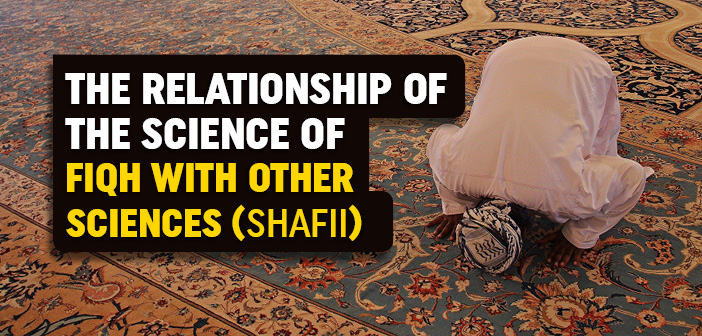What is relationship between science of fiqh and other sciences?
1. The relationship of fiqh with the science of Qur’anic exegesis (tafsir): The science of Qur’anic exegesis examines the Holy Qur’an, explains the meanings of the verses, and deals with the occasions of the revelation of the verses. The information and interpretations provided by the science of Qur’anic exegesis are very important in defining the rulings in fiqh.
2. The relationship of fiqh with the science of Hadith: The science of Hadith examines the sayings, actions and tacit approvals of our Prophet (pbuh). It establishes the authenticity of the hadiths and the characteristics of the narrators of the hadiths. When a legal ruling is needed to be established, Muslim jurists first check the Holy Qur’an and the Sunnah of the Prophet (pbuh). Hadiths play a determinative role in the issuance of legal rulings.
3. The relationship of fiqh with the science of Siyar: Siyar is the study of our Prophet (pbuh)’s life, character, behaviors, state administration, battles, and reactions in the face of events. When fiqh needs to issue rulings for new cases, it also benefits from the data provided by study of siyar. Since the Sunnah is the second source of fiqh, it can be learned from both the hadiths and the siyar.
Other sciences from which the science of Fiqh benefits: The science of fiqh also benefits, whenever necessary, from the history of Islam, the history of sects in Islam, the study of Islamic creed, and Sufism.
When the ruling of a case is needed to be deduced from the sources, it is also necessary to have knowledge about the worldly sciences related to the case in question. This is because the science of fiqh benefits from other scholarly fields such as sociology, psychology, medicine, biology, geography, history, literature, and language. We would like to present the following information as an example for the relationship between fiqh and such sciences:
The relationship of fiqh with Philosophy and Logic: In order to prove the validity of its rulings and explain their justifications, the science of fiqh offers some explanations. When dong this, fiqh benefits from the methods of philosophy and logic. Even though when issuing his legal views it is the main sources that a Muslim jurist examines first, he also employs his independent reasoning, logic and constructs analogies.
The relationship of fiqh with Sociology: Sociology is the science that deals with society and its customs and traditions. Fiqh also accepts social practices, customs and traditions as a valid source for determining rulings.
The relationship of fiqh with Psychology: When the science of fiqh looks for the ruling of an action of a person, it pays attention to the psychological state of that person. For example, fiqh teaches that a person is not deemed responsible for oaths that he took when he was so angry that he did not know what he was saying.
The relationship of fiqh with Language: In order to be able to deduce rulings from verses, one should know Arabic proficiently, because Arabic is the language of the Qur’an.
When one does not know these scholarly fields related to the case in question well enough, one cannot determine its legal ruling. Without knowledge of the historical development of a case, geographical location, a person’s biological development, or the meaning of a word, it would not be possible to issue a ruling about it.
Source: Fiqh1 (According To The Shafi’i School Of Islamic Law), Erkam Publications





